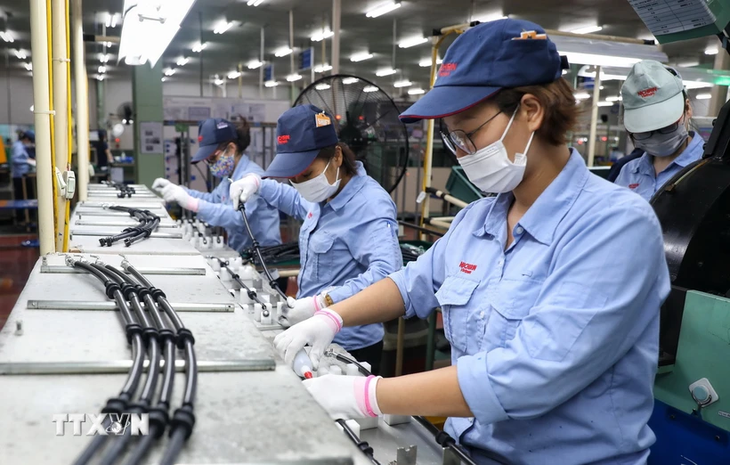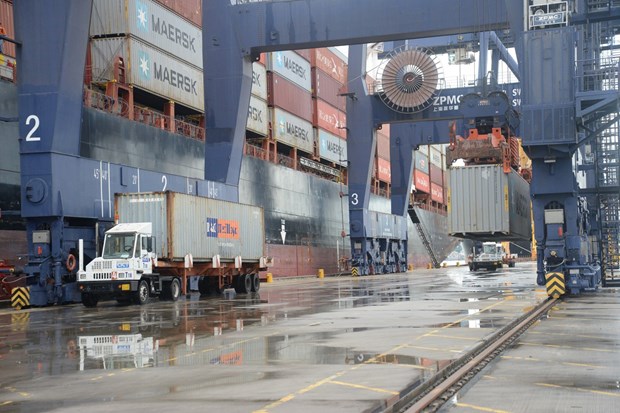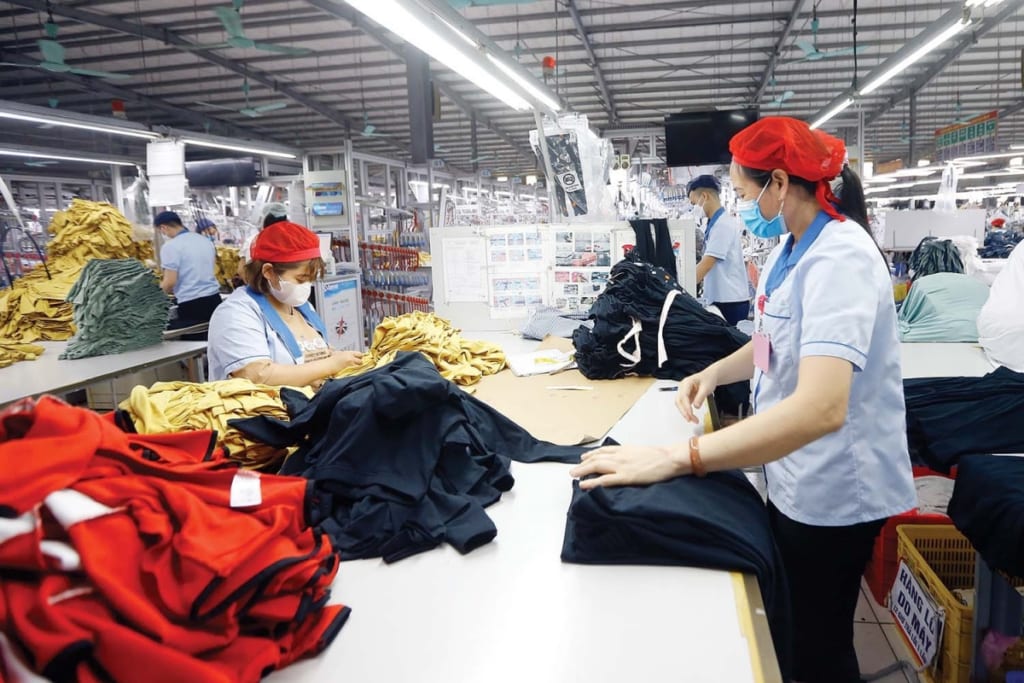Vietnam has rapidly emerged as a significant player in global supply chains, driven by the dedication and skill of its workforce. Vietnamese supply chain workers, from electronics to agriculture, play a crucial role in maintaining the smooth functioning of various sectors. This article explores the key contributions of these workers and examines how their skills, adaptability, and commitment make them indispensable to global businesses.
1. Vietnam’s Growing Importance in Global Supply Chains
Over the past decade, Vietnam has evolved from an agriculturally driven economy to a manufacturing powerhouse. With increasing international trade agreements and strategic positioning in Asia, Vietnam has become a pivotal part of global supply chains.
Key Trade Agreements:
Trade deals like the Comprehensive and Progressive Agreement for Trans-Pacific Partnership (CPTPP) and Vietnam’s strong economic relationships with the EU, the U.S., and China have expanded its influence. Vietnamese workers are central to this development, especially in manufacturing sectors such as electronics, apparel, and footwear, where their contributions fuel the country’s growth.
Example:
Major multinational companies, including Samsung, Nike, and Intel, have set up large-scale manufacturing operations in Vietnam. These businesses rely heavily on the efficiency and skill of Vietnamese supply chain workers to meet global demands for high-quality goods.
2. Adaptability and Skills of Vietnamese Supply Chain Workers
Vietnamese supply chain workers are known for their adaptability, a trait highly valued in industries facing ever-evolving challenges. Their ability to learn new technologies, adapt to market shifts, and work under varied conditions ensures that supply chains remain resilient.
Diverse Skill Sets:
In sectors like textiles, footwear, and electronics, Vietnamese workers possess a mix of technical and manual skills. Vietnam’s emphasis on vocational training equips workers with the expertise needed to meet the unique demands of global industries.
Case in Point:
In the electronics industry, where rapid technological shifts are common, Vietnamese workers excel at learning new production processes. This ability to quickly integrate new techniques ensures smooth transitions when production lines are upgraded, minimizing disruptions and keeping operations efficient.
3. Vietnamese Workers in Manufacturing and Export
Vietnam’s integration into the global supply chain has been heavily driven by its manufacturing sector. From garments and footwear to machinery and electronics, Vietnamese supply chain workers are central to producing and exporting goods that reach consumers around the world.
Key Export Sectors:
Vietnam is one of the world’s top exporters of textiles and garments, with major brands like Nike, Adidas, and Uniqlo relying on Vietnamese supply chain workers for production. The footwear industry also plays a massive role, with millions of shoes produced and exported each year by Vietnamese workers.
Example:
In garment factories, Vietnamese workers handle tasks such as cutting fabrics, sewing garments, and performing quality control checks. Their speed and precision ensure that products meet international quality standards, helping Vietnam maintain its competitive edge in the global apparel market.
4. Agricultural Contributions: The Backbone of Vietnam’s Economy
Although manufacturing is on the rise, agriculture continues to play a critical role in Vietnam’s economy. Vietnamese supply chain workers contribute significantly to the global food industry by producing rice, coffee, seafood, and other agricultural products that are exported worldwide.
Global Impact of Vietnamese Agriculture:
Vietnam is the second-largest exporter of rice and one of the top exporters of coffee, feeding millions around the world. Vietnamese agricultural workers ensure a steady supply of these commodities, meeting global demand for high-quality food products.
Case Comparison:
Unlike countries that rely heavily on mechanized agriculture, Vietnamese supply chain workers often blend traditional farming practices with modern technologies. This approach results in sustainable production methods that appeal to consumers who prioritize ethical sourcing and environmental responsibility.
5. Vietnamese Workers in Electronics and High-Tech Supply Chains
Vietnam has become a hub for the electronics industry, with global tech companies establishing large production facilities in the country. Vietnamese workers are central to the manufacturing of high-tech products such as smartphones, laptops, and home appliances.
Key Contributions to High-Tech Industries:
The demand for consumer electronics continues to grow, and Vietnamese supply chain workers are pivotal in meeting this demand. Their ability to adapt to highly technical production environments makes Vietnam a preferred destination for electronics manufacturing.
Example:
Vietnamese workers at Samsung’s factories produce high-end smartphones and other electronic devices. Their attention to detail and ability to work with complex machinery ensures that these products meet the high standards of international consumers.
6. Logistics and Transportation: Vietnamese Workers Supporting Global Supply Chains
Vietnam’s strategic location in Southeast Asia has made it a key hub for logistics and transportation. Vietnamese workers play an essential role in ensuring that products move efficiently through the supply chain, from production facilities to international markets.
The Role of Logistics Workers:
Vietnamese logistics workers manage operations at ports, warehouses, and transportation hubs. Their work ensures that goods are delivered on time, maintaining the efficiency of global supply chains in industries such as electronics, textiles, and agriculture.
Case Study:
At the Port of Hai Phong, Vietnamese workers manage the flow of goods to international destinations. Their ability to work under tight schedules ensures that Vietnam remains a reliable link in the global supply chain, helping businesses meet their delivery deadlines.
7. Challenges Faced by Vietnamese Supply Chain Workers
While Vietnamese supply chain workers contribute significantly to global markets, they also face challenges. Rising labour costs, automation, and the demand for advanced digital skills are some of the key challenges that workers must overcome to remain competitive.
Analysis:
Automation is transforming industries, and as more companies adopt automated processes, Vietnamese workers must upskill to maintain their relevance. The Vietnamese government and private sector have recognized this need, investing in retraining programs focused on improving digital skills and technical proficiency.
8. Opportunities in Emerging Sectors
Vietnamese workers are not limited to traditional industries. As global demand grows for renewable energy, electric vehicles, and smart technologies, Vietnamese supply chain workers have opportunities to enter these emerging sectors.
Future Growth Areas:
With investment flowing into renewable energy and high-tech manufacturing, Vietnamese workers are expected to take on more prominent roles in producing components for electric vehicles, solar panels, and other sustainable technologies.
Example:
Vietnamese workers are already involved in the production of solar panels for export to Europe and the U.S. As global interest in renewable energy continues to rise, Vietnam’s workforce is well-positioned to take advantage of these growing industries.
9. The Future of Vietnamese Supply Chain Workers
Looking ahead, Vietnamese workers will continue to face both challenges and opportunities as Vietnam’s role in global supply chains evolves. The increasing focus on sustainability and digital transformation will require continuous learning and skill development.
Upgrading Skills for the Future:
Vietnamese workers are well-known for their adaptability, but the future demands more than just flexibility. Workers will need to develop technical skills in automation, data management, and digital supply chain optimization to remain competitive.
Looking Ahead:
With Vietnam’s government committed to workforce development and upskilling, Vietnamese workers are poised to remain integral players in global supply chains, contributing to sectors such as high-tech manufacturing, logistics, and renewable energy.
Conclusion
Vietnamese supply chain workers have become an essential force in global trade, providing the backbone for industries like electronics, agriculture, textiles, and logistics. Their adaptability, skill, and work ethic have allowed Vietnam to emerge as a key player in global supply chains. As industries shift toward automation, digital transformation, and sustainability, the role of Vietnamese workers will continue to evolve. With continued investments in skill development, they are set to maintain their vital place in the global economy for years to come.




